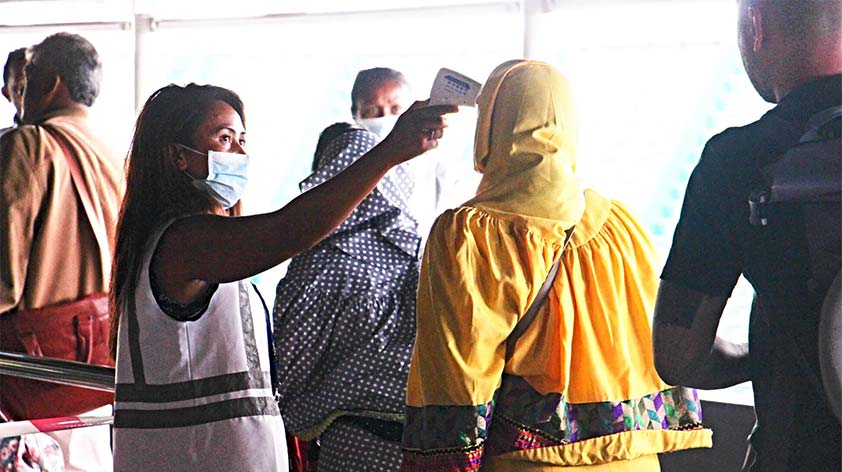
In this special report we get eyes on the ground in a country where the coronavirus could have catastrophic effects. If you thought social distancing due to COVID-19 was awkward, well let’s just say you wouldn’t want to be in Madagascar where it’s been a real fight for survival. I’ll give you the lowdown in Coronavirus in Madagascar: How it Affects a Vulnerable Country.
In early March I landed in Madagascar – my home country. The rest of the world was already familiar with the invisible-like enemy that had begun spreading its roots across many lands. In particular, the first hotspot of the pandemic known to be the region of Lombardy, Italy – my mother’s homeland and the area where my sister is currently confined with our three dogs.
At first, flying back to Madagascar felt like an escape – a sunny island where the plague, dengue fever, and cholera is still present but the term “coronavirus” is unheard of. Although I was glad to be back home and reunited with the rest of my family, an unsettling thought constantly troubled my mind – if the pandemic spreads to this part of the world, will the nation survive? A nation where the population depends on its day-to-day basis for survival, where millions of its people live in close proximity to one another due to a lack of resources, and where access to basic healthcare is an illusion.
It is the 20th of March, and I am sitting in the car on my way home. I notice the usual fruit vendors across the street chopping pieces of watermelon, the man selling Baobab sculptures approaches my window and smiles – I smile back, a young girl – perhaps around her 20’s – is sitting with her three sons ready to braid her next customer’s hair. The youngest son holds out a palm asking for 100 Ariary – the equivalent of 22 UK pence.
My heart grows tender, with a slight burning sensation. As I am parking in my driveway, I can hear the television’s volume blasting through the windows, when suddenly my ears grasp the word “coronavirus”. The first case of coronavirus was officially confirmed in Antananarivo, the capital city of Madagascar.
Today, there are 102 cases of coronavirus on the island of Madagascar – well, confirmed cases. Confinement, social-distancing, and curfew legislations have been placed by the government. Fruit vendors’ sales have dropped by half, all bakeries have shut down, and almost all private businesses are forced to banish their employees on unknown leave whilst cutting their wages in half.
The problem is that, in a poverty-stricken country, individuals live by the day – they don’t have savings that could last them a certain amount of time or the ability to skimp on food. Furthermore, the price of any food staple relied on by the general population has suddenly surged, forcing individuals to break down stores and steal anything they can get their hands on to survive the next upcoming days.
In wealthy nations, quarantines have been instructed, while governments and central banks have spent trillions of dollars to limit any economic damage. But in countries like Madagascar, where families cram into teeming slums, how does one self isolate? People who sustain themselves by accumulating pieces of metal obtained from garbage dumps risk hunger if they remain home.
Public transportation has been banned, constraining those who need to go to work, to walk. However, the capital city’s streets have no sidewalks and make up half the size of a typical road – countless workers spend their mornings crowded amongst one another. Social-distancing just isn’t possible.
Recently, Madagascar has announced a possible treatment against the coronavirus with the utilisation of herbal remedies; Ravintsara. However, further research must be carried out in order to fully confirm this.









